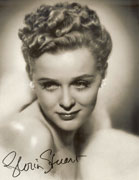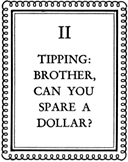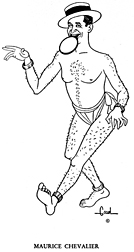Here are 10 things you should know about Paul Lukas, born 129 years ago today. He arrived in Hollywood as the silent era was winding down and had to scramble to adapt to talking pictures.
Tag: Paul Lukas
10 Things You Should Know About Marilyn Knowlden
Here’s wishing many happy returns of the day to Marilyn Knowlden, who is celebrating her 97th birthday today. Here are 10 things you should know about the former child star.
10 Things You Should Know About Ann Blyth
Here’s wishing many happy and healthy returns of the day to Ann Blyth, who celebrates her 93rd birthday today. Here are 10 things you should know about this versatile actress.
Remembering Gloria Stuart on Her Birthday
Gloria Stuart was born on Independence Day, 1910, in Santa Monica, California. In 1999, when she was just a kid of 89, we got to interview her on the occasion of the publication of her memoir, I Just Kept Hoping. The interview was conducted over the telephone, though we did get the chance to meet Ms. Stuart when she came to NYC for her book party.

We considered it quite a thrill, we don’t mind telling you, to get to interact with Ms. Stuart. After all, this is the women who starred opposite Claude Rains in James Whale‘s The Invisible Man, who appeared with Boris Karloff, Melvyn Douglas, and Charles Laughton in The Old Dark House, who worked with greats such as Irene Dunne, Ralph Bellamy, Pat O’Brien, Lionel Barrymore, Lee Tracy, Nancy Carroll, Frank Morgan, Paul Lukas, Edward Arnold, Eddie Cantor, Ruth Etting, and dozens more.
So, to celebrate her 111th birthday, we thought we’d share the interview we did with her in 1999. Enjoy!
It’s been a long, eventful life for former and current movie star Gloria Stuart. She had her first go-around at stardom in the Hollywood heyday of the 1930s and ’40s; then, after taking off 30 years or so to pursue painting, travel, and political activism, she again began to act in the 1970s, eventually garnering a Best Supporting Actress nomination for her role in Titanic. Still going strong today at the age of 89, Stuart has now added authorship to her list of achievements. Her candid memoir, I Just Kept Hoping, is peppered with anecdotes about such memorable figures as Shirley Temple, Groucho Marx, Dorothy Parker, and J. Robert Oppenheimer, the father of the atomic bomb. We spoke to Gloria about her life, her two careers in the movies, and her secrets for living so long and so well.
An Interview with Gloria Stuart
You made three films with director James Whale: The Invisible Man, The Old Dark House, and The Kiss Before the Mirror. What can you tell us about him?
I’m very happy I was in those films. You know, James is a cult figure in England. There are a lot of James Whale fan clubs. Actually, right after I had read for Jim Cameron for Titanic, I had booked a month in London. I went right away, and there were two wonderful James Whale organizations that I met with. He’s getting his due now, thanks to Gods and Monsters.
What did you think of Gods and Monsters? Was it, in your view, an accurate portrayal of Whale?
Oh, yes, it was. Ian McKellan captured James’s elegance, the beautiful manners, the beautiful tailoring, the precision, the whole thing. Of course, no one could be James, but he came awfully close.
The special effects in The Invisible Man hold up remarkably well today for a film that was made in 1933.
Yes, people who see it today—it runs every so often—they say, gee, it’s not an old hat movie at all.
I’m wondering—did the processes that went into creating those special effects slow down the pace of moviemaking at all?
It was never evident. Only James and the cameraman and I guess all the process people at Universal—the rest of us never had any inkling of what was going on. We did do a lot of shooting in front of black curtains. Now, I wasn’t on the set when the bandages came off or anything like that, so I have no idea about that. But it was very, very secret. I wasn’t on the set when they were finagling the bandages off, and so forth.
That would’ve been fun to see.
Yes, it would’ve! Claude [Rains] may have known [how it all worked] but he never said so.
You and your second husband, Arthur Sheekman, were good friends with Humphrey Bogart and Mayo Methot, his wife at the time. What can you tell us about Bogie that we might not know?
Read More »
In Your Hat, pt. 2
Here’s Chapter 2 of In Your Hat, the 1933 tell-all memoir by Hat Check Girl to the Stars, Renee Carroll:

I DON’T claim that Ziegfeld missed a bet when I decided to become a hat check girl, but I fill a spoke in the wheel, and most of the boys want to go around with me.
Honestly, though, I can’t say I hate it when for no good reason at all Buddy Rogers kisses my hand as publicly as if we had been on the Roxy stage. Two girls who were squashing their noses against Sardi’s window well-nigh swooned when that happened, and I’d be fibbing if I said I was far from pulling a faint myself. Only a few weeks before I had been standing at the stage door of the Paramount Theater waiting to catch a glimpse of America’s Boy Friend, reveling in the usual girl’s thoughts about swinging in a hammock with Buddy Rogers at my side, or is it paddlin’ a canoe or listenin’ to the moon? I’d heard lots of people call the tall dark boy Bloody Rogers in jest, but it isn’t fair.
Well, anyway, he came into Sardi’s, handed me his hat, and then, inquiring after my health in a most solicitous manner, touched his lips to my hand. Maybe it’s true that a couple of the Broadway wise boys who were sitting in the restaurant did make noises that sounded suspiciously like Bronx nose blowing, but it was a dream of a moment. For a second I forgot that I was supposed to be sophisticated.
And Bob Montgomery, before he became what he is, and you know what that is, was just another of the nice Broadway gang. He was one of my “promissory nuts”, as I called the boys of that class, who were always promising things for the dim future.
In Bobby’s case, it was always the generous tip he was forecasting because he didn’t have even a dime in his jeans to leave for checking. Not that I minded at all, but business must be on the level. And whenever he’d pick up his hat, after unsuccessful attempts to land some work by being seen at Sardi’s during lunch, he’d say: “Put it on the cuff, Renee.” Unfortunately, I wear no cuffs except mental ones, and I keep remembering little things like that.
Especially I’ll never forget the little fellow who was so near-sighted that he once tipped me a penny, certain that it was a dime. And ever afterward, recalling his mistake, he would come into Sardi’s every day and say: “You remember me, don’t you, young lady? I’m the man who gave you a cent by mistake!” As if I’d ever forget a penny tip!
Tipping is a great art if you know how, and getting the tip—particularly from a celebrity—is even a greater one. Getting a man to tip without his being conscious of the amount is the most delicate and subtle operation in the world. Some day I’m going to write a book on “The Technique of Tipping.”
I’ve been talking a lot on this subject to professional waiters. I don’t mean the boys who are helping Mother along by taking up the table as a sideline, but those whose front handles are usually Oscar or Fritz, and in whose families waiting has been a profession for centuries. One of our waiters was so proud of his serving lineage he claimed that one of his ancestors served spaghetti on the Santa Maria!
People naturally hate to tip, especially when they have a Gallic strain in them. Generosity is not usually governed by economic conditions. Even when a man who tips a good amount ordinarily is almost broke, he will not let this be a factor in keeping him from tipping his usual amount. It’s the habitual tightwad who’ll skimp on service and then go out and let his girl friend rook him for some matched sables.
 One day Walter Donaldson, the songwriter, drove up to the restaurant with Maurice Chevalier. It was summer, and as Chevalier came out of the auto, he took off his hat and threw it on the back seat. Donaldson kept his on.
One day Walter Donaldson, the songwriter, drove up to the restaurant with Maurice Chevalier. It was summer, and as Chevalier came out of the auto, he took off his hat and threw it on the back seat. Donaldson kept his on.
I believe in the equal distribution of wealth, and when the two approached my booth, I stopped the inimitable Maurice.
“Mr. Chevalier,” I began. “I paid a dollar to see your newest picture last night.”
“Oh yes? And how did you like it?”
“I thought it was fine,” I told him.
“Thank you very much.”
“But, Mr. Chevalier, after I paid a dollar to see your picture, do you think it’s fair for you to leave your hat in the car to save a dime?”
I knew it wasn’t the nicest thing to do, but it worked like a charm. The Frenchman ran out into the street, retrieved his hat and deposited it with me.
“It will never happen again!” he assured me as his famous underslung lip curled forward in its traditional smile
“Merci, mille fois.” I told him in my best French. He tweaked my cheek and marched on. Walter Donaldson thought it was a riot and didn’t stop laughing for two days.
Read More »
